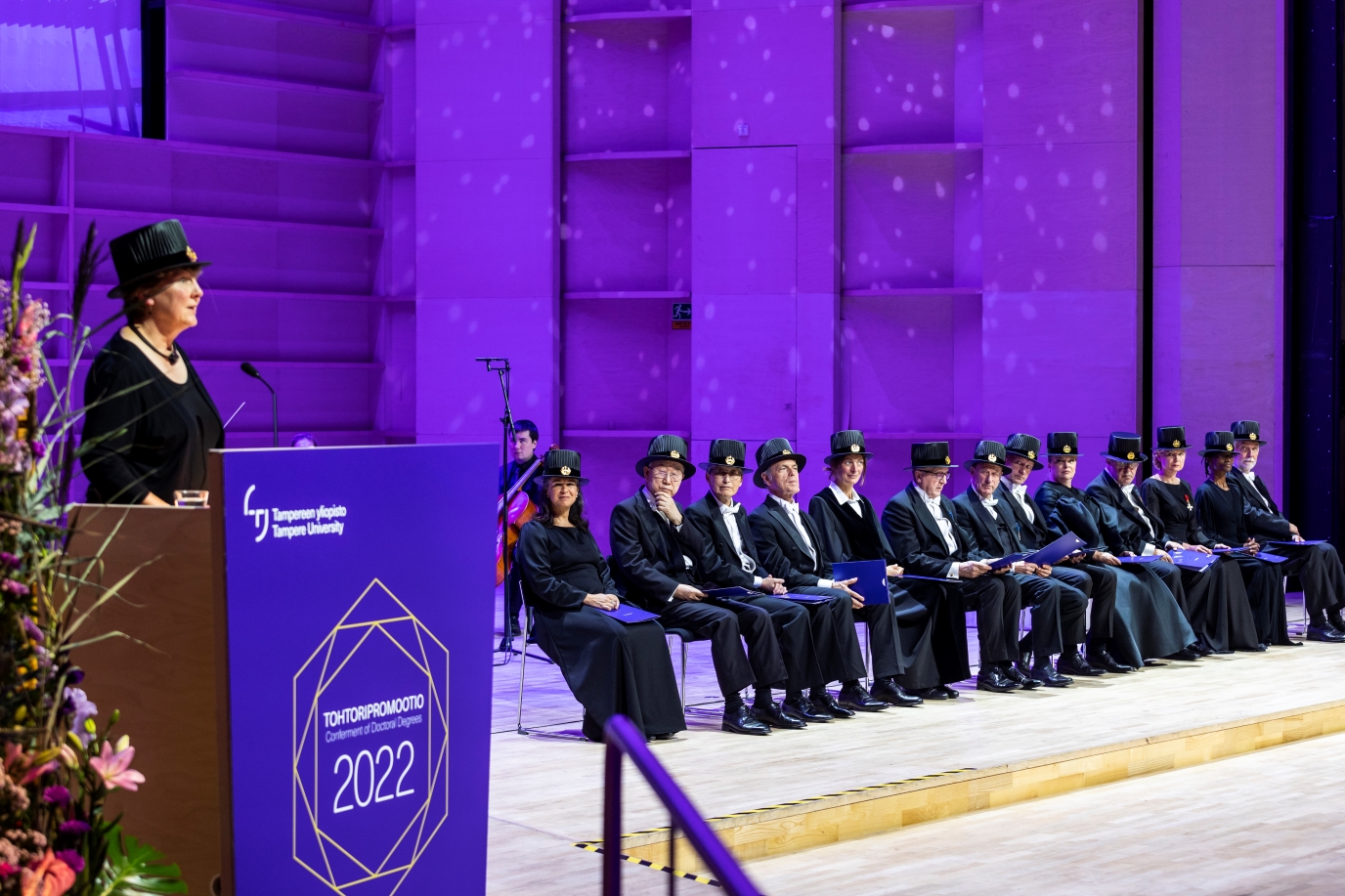Professor Sabeth Verpoorte awarded Honorary Doctorate from Tampere University
Tampere University's honorary doctorate laureate programme recognises world-class research and education focusing on technology, health and society. In the framework of this programme, Prof. Sabeth Verpoorte has been awarded an honorary doctorate for her work on lab-on-a-chip and organ-on-a-chip research as well as for long-standing interdisciplinary collaborations. Verpoorte is head of the research group Pharmaceutical Analysis of the Groningen Research Institute of Pharmacy (GRIP).
The title of Honorary Doctor is the highest recognition that a university can award. The doctorate was awarded during the Conferment Ceremony that took place in the city of Tampere, Finland, last August. Verpoorte also received a special honorary doctorate hat bearing the symbol of Tampere University.

More news
-
14 January 2026
What the smell of the sea does to the clouds above Antarctica
